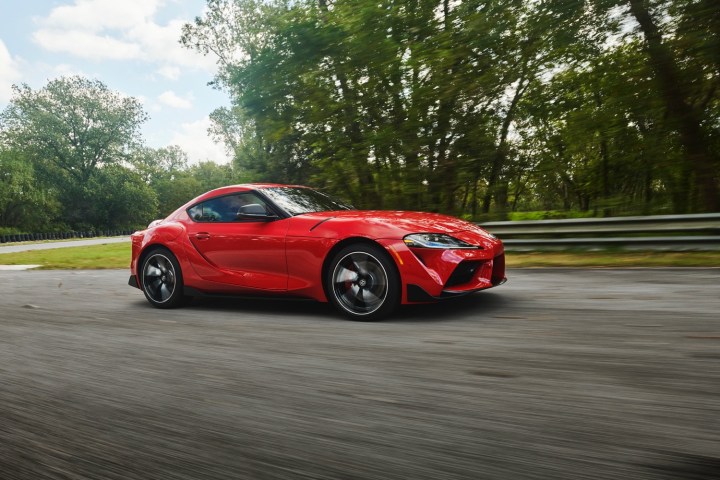
Canadian automotive supplier Magna has been developing components for cars since the days when downdraft carburetors were considered cutting-edge. It’s not old-school, though. As it looks towards the future, the company has started integrating virtual reality (VR) technology into its research and development department to give engineers a more realistic vision of what they’re building, and to bring continents closer to each other.
Instead of making models using clay, engineers can create a part, an entire interior, or a complete powertrain using software and experience it first-hand by putting on the same VR goggles you use to play Firewall Zero Hour on PSVR. Adding this tech to the development process saves a tremendous amount of time and money. Magna explained VR can show how a part absorbs energy during an accident, for example. Without it, getting that data would have required making a prototype and stuffing it into a wall, which is expensive, or running computer simulations, which are less realistic because they’re displayed on a screen.
Engineers whose job is to develop interior parts use VR to find out how a specific component fits into the bigger picture. Seeing the part before it enters the prototype stage is a helpful way to make sure it’s user-friendly and attractive. Magna builds cars, too; it notably manufactures the Toyota Supra, the BMW Z4, and the Mercedes-Benz G-Class in Graz, Austria. Each car requires its own unique set of tooling, and taking a stroll through a virtual representation of its factory helps it plan the assembly line expansion when it adds a new model.
The benefits of VR extend beyond Magna’s Austrian branch. The technology lets engineers to work together on a project even if they’re on different continents. “Because the new technology allows multiple people to view the same virtual 3D models at once, an engineer in China can see what changes and remarks an engineer in [Austria] is making in real time,” Magna explained in a statement.
Magna isn’t the only company that has integrated VR into its development process. When Digital Trends visited Ducati’s design studio, we learned the Italian motorcycle manufacturer sometimes puts two designs in a virtual reality room to compare them without making prototypes.
Editors' Recommendations
- Iconic music venue will present live gigs you can watch in VR from your home
- Qualcomm’s new headset design shows off the XR2 VR platform
- Volvo wants to use augmented reality tech to help design future cars
- Nike Fit aims to help you slip into your new sneakers more easily
- Valve Index VR headset costs $500, but the full bundle will set you back $1,000




